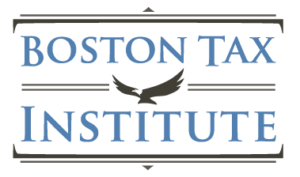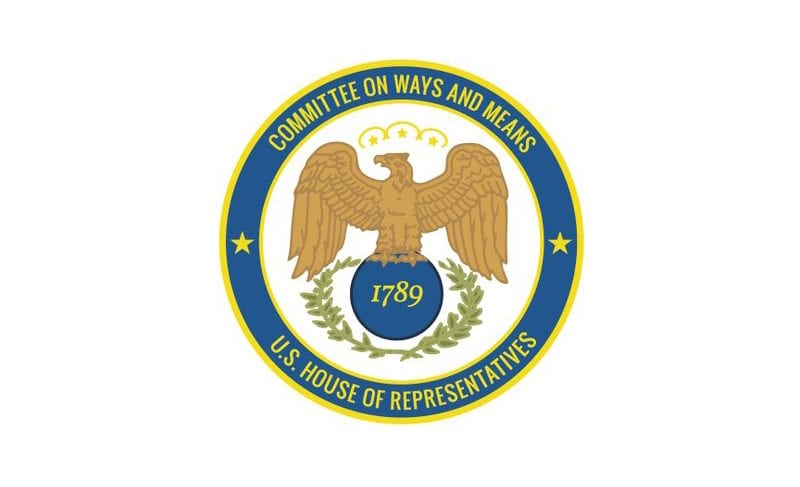The revenue portion of the Build Back Better Act (BBB) that is moving along dramatically changes the landscape for transfer taxes (i.e. gift and estate). Accelerating the scheduled reduction in the unified credit from $10 million to $5 million (indexed for inflation from 2010) is most noticeable. For those of us who are fond of round numbers, the 2022 unified credit is reduced from $12 million to $6 million more or less. The special use valuation adjustment for farms will be increased from $750,000 to $11,700,000 (the 2021 unified credit).
One of the things that it is discouraging to learn is that intellectual integrity is of limited value in tax practice. Reilly’s First Law of Tax Planning – It is what it is. Deal with it – is usually referring to taxpayers getting hammered by rules that don’t seem to make much sense. Sometimes it works in reverse. The estate planning techniques techniques targeted by BBB seem at least to me like they shouldn’t work, but they do. Which means they are in my bag of tricks and in an audit I would defend them ferociously. On the other hand I will be happy to see them go, if BBB passes.
Why Did You Give Me A Defective Trust?
Back in the day we had much higher top marginal rates and a Code that you could drive fleets of trucks through. One way to deal with the high marginal rates was to shift income to lower bracket taxpayers including trusts. A way to view the history of the Code is as an arms race between clever planners and legislators and policy makers. An early entry in the race was the idea of the grantor owned trust.
If you put property into trust, but retained certain powers or might benefit from the trust, then the trust’s income would be included on your return. Over time other provisions made shifting income to trusts less attractive. The top marginal rate which had been as high as 91% decreased dramatically. And the rate table for trusts was compressed. So very little in the way of income tax savings could be gained by shifting income to a trust.
There are also retained powers that will cause a trust to be pulled back into your estate when you die. The lists are not the same, which is what created an opening for shenanigans. Planners started creating trusts that would be effective for estate tax purposes, but not for income tax purposes. They might for example give the grantor the power to substitute the property put into the trust with some other property of equal value. That would be the “intentional defect” in an intentionally defective grantor trust.
The “advantage” of this arrangement is that the income of the trust is taxed to the grantor even though it is going to the benefit of the natural objects of their bounty. I have heard stories of clients who have not been pleased by these arrangements when they worked out in practice and they had to come up with money to pay tax on income that they didn’t receive and did not have access to.
The Change
What BBB does is make the income tax and estate tax rules consistent. If the trust income gets pulled onto your income tax return, then the trust assets will be included in your estate. The rule will be applicable to trusts created after enactment and the portion of any trust that is added after enactment. Thinking about that portion thing, it strikes me as an accounting nightmare, so I would think that the smart thing to do is not to add to grandfathered trusts.
There are some other fine points. If distributions are made to beneficiaries other than the grantor, the distributions will be considered gifts, for example.
It is possible that if this bill is not tweaked it could be highly disruptive to life insurance plans. One of the powers that currently pulls the trust in for income tax purposes is the right of the trustee to use trust income to pay life insurance premiums. This could affect a lot of existing irrevocable life insurance trusts, since many insurance trusts require continued funding. I think there will be solutions to the problem, but there may be quite a few people who are asleep at the switch and end up having policy proceeds pulled into their estates in the future.
The other technique that is killed is sales to grantor trusts without recognizing any gain. This was another way that the difference between the income tax rule and the transfer tax rule was exploited. Extremely low applicable federal rates made it attractive.
How Much Is That Partnership Interest In The Window?
There is also an attack on discounting of assets. A classic technique is stuff a lot of assets into a limited partnership. Then you gift limited partnerships interests. Because of lack of marketability and control and restrictions on transferability the limited partnership interests are worth less than the proportionate share of the value of the assets. The new rule would require that non-business assets be pulled out of the equation and not subjected to discount.
There still seems to be some deference to the real estate masters of the universe in the way the language is framed. Real estate held in a real estate trade or business by someone who qualifies as a real estate professional does not count as a passive asset. Other real estate does. The language on real estate strikes me as unclear. I think I will wait to see what passes to figure it out better.
Reactions
I heard from Neil Carbone of Farrel Fritz PC. He told me that the estate planning community has been on pins and needles awaiting the final tax changes. The rate change was no surprise, but the limitations on further contributions to large retirement accounts ($10 million plus), which I have not discussed was.
He noted the common hurry up and wait attitude that some people take toward their estate plans.
After the 2020 election, many high net worth individuals engaged in significant estate planning of one type or another to use their existing lifetime exemptions. Others took a wait-and-see approach. Some wanted to do some planning but started the process so late that it became impossible to get it done by the end of the year because many estate planners, appraisers and trust companies became so overwhelmed that they just could not accommodate new work.
Now that they are upon us, these new tax changes will bring about a similar overflow of estate planning work. If the goal is to use up some or all of the increased exemption amounts while they exist, there is still time to do that as the change to the exemption amounts would not be effective until January 1, 2022. Anyone seeking to do that should act quickly, however, because it will become increasingly difficult to find the professionals available to do the work in time.
If you want to do the fancier stuff involving grantor trusts and valuation discounts, your timeline is even tighter, since those changes could be effective on enactment. His final word was: “If you’re going to act – act quickly“.
Brandon Baker of Friedman LLP wrote:
President Biden indicated during his campaign last year that if elected, part of his plan would be to raise taxes on the wealthiest taxpayers including changes to the estate tax exemption made under the TCJA. Given the uncertainty of what changes would be made in 2021 and the possibility of changes being retroactive to 1/1/2021, most of our clients began planning for the reduction in the estate tax exemption in 2020; following the election many of our clients finalized their transfers in December to use up their remaining lifetime exemption (and GST exemption) up to the available $11.58M.
Some of those clients who did not act in 2020 have made transfers in 2021 either under a formula clause or via a QTIP trust. Use of a formula clause or QTIP trust can allow the gift to be made in an amount that would not exceed the transferor’s available exemption, even if the lifetime exemption changed during the year. While the mark-up of the House Ways and Means Committee Bill (“Bill”) indicates the exemption will remain $11.7M for the remainder of this year it is not yet law. Clients who acted in 2020 are willing to wait to see what occurs with the Bill over the next few weeks; many of them are poised to make “stub gifts” to make use of the available exemption they have remaining after 2020 and the $11.7M exemption currently available in 2021.
Be Sure To Follow Through
Two of Reilly’s Laws of Tax Planning are worth emphasizing when a new round of estate planning documents is in the offing. The Fourth – Execution isn’t everything, but it’s a lot – and the Ninth – Tell the preparer what the plan is.
On the execution piece, I predict that there will be people who will rush to get documents executed who will fail to follow through with the mundane steps of opening new accounts for the new entities and transferring assets. Remember the new rules will apply to additions to trusts after enactment.
On the Ninth law, be sure to provide the new documents to whoever is doing the income tax returns and also some sort of memo from the planners telling them how things are supposed to work. And make sure you understand how they are supposed to work. Paying the income taxes on money that went to the grandchildren’s trust is a good thing. It was the plan. Don’t complain.
I sometimes think that the estate and gift tax system is actually a white collar jobs program for college graduates not quite smart enough to become physicians or engineers. It redistributes wealth from the upper class to the upper middle class. Too bad this is going to ruin the holidays for them.
Other Coverage
There is too much coverage on this issue for me to do my usual review. I did note this article with multiple authors from Lowenstein Sandler – House Tax Proposal Would Restrict Grantor Trust Planning: What You Need To Know Now.
The proposed changes particularly hurt individuals who have created irrevocable life insurance trusts and who continue to fund premium payments on trust-owned policies through annual gifts (including by direct payment of policy premiums). If the bill becomes law, such gifts will cause an increasing portion of the policy proceeds (and any other trust assets) to be taxable at the grantor’s death–exactly the result that insurance trusts are created to avoid.
I think this is the most broadly applicable problem that may be created. Irrevocable life insurances trusts are not restricted to the ultra-wealthy.
—————————————————————————————————————————————————————-
Originally published on Forbes.com.
For great value continuing professional education. I recommend the Boston Tax Institute

You can register on-line or reach them by phone (561) 268 – 2269 or email vc@bostontaxinstitute.com. Mention Your Tax Matters Partner if you contact them.































































































